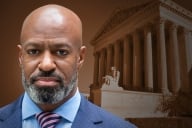You have /5 articles left.
Sign up for a free account or log in.
May I begin by thanking the U.S. Embassy in Rome, John Cabot University and the Florentine Consulate for this invitation and their very gracious hospitality. When I spoke last year at John Cabot, I mentioned that following the talk I was headed to Gaeta to meet for the first time Italian cousins of my father's mother's family. It was a wonderful experience, I subsequently have found new relatives back in the States from the same family, and I am in all possible ways deeply grateful for these opportunities.
I enjoyed yesterday's remarks fully and came away so very impressed by the multiple efforts that the Italian government has made to address infringement in both areas of trademark and copyright that challenges all countries in one way or another. By working together I expect we will continue to make progress that will enhance the global economy to our mutual benefit. I would like to make an observation about what I heard yesterday that is a segue to my remarks this morning. The focus on genuinely criminal elements, and organized crime in particular, is refreshing to me because it is in contrast to the emphasis on individual infringers, the end user, that is made in the United States. That emphasis has led, in my opinion, to a displaced focus on higher educational institutions in the United States as the locus of the problem at least in the area of copyright infringement.
For the last decade, higher education has spent considerable and increasingly scarce funds defending itself from the publishing and entertainment industry, which, if they are sincere in their belief that it is colleges and universities causing their problems, both faculty and students, they would do well to listen carefully to the comments yesterday. For the lion's share of global infringement, especially sites that collapse trademark and copyright infringement by selling counterfeit items and allowing users to stream content without the permission of rights holders, I believe you all have hit the nail more squarely on the head than one would come to see the problem from the public relations departments of U.S. content holders. In the area of copyright, and from this perspective, I offer my remarks today.
Thesis: There is no greater way to manage infringement than to create greater compliance with law. Copyright reform is essential to compliance and therefore should be part of the enforcement package. Not only will this approach work better to achieve the balance the Founding Father's of the U.S. Constitution sought in what we now call intellectual property, that is innovation and incentive, but it will respect intellectual property on the world's economic stage.
"To promote the Progress of Science and useful Arts, by securing for limited Times to Authors and Inventors the exclusive Right to their respective Writings and Discoveries …"






